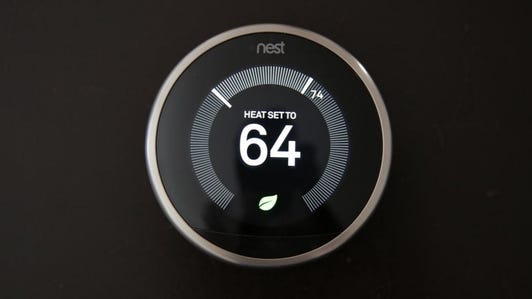When Is the Best Time to Work Out to Burn More Calories?
Between jobs, families, household obligations, friends, errands, sleep and, ideally, hobbies and relaxation, where the heck does exercise fit in? It's not easy for most people to wedge an hour of structured physical activity into their days -- and it might feel worthless, anyway, when conventional wisdom tells us to exercise at the crack of dawn (no thanks).
When no time feels like a good time, is it better to squeeze in a sweat session right after waking up, or should you push yourself to extend your long day by another 30 to 60 minutes?
Both morning and evening exercise have health benefits and potential pitfalls, but for most people, the right time to exercise is not about how many calories you burn or how much weight you lift -- it's more about how you feel when exercising and how exercise fits into your daily schedule.
Read more: Lose fat and gain muscle at the same time: Yes you can
The best time to exercise is whenever you can

The best time of day to exercise is whenever you can do so consistently.
Getty ImagesLet's get this out of the way first: The best time to work out is whenever you can. We don't all have schedules that allow for a 90-minute workout, green smoothies with collagen and a 20-minute session with a Theragun, unfortunately.
If your only time of day to exercise is before work, then morning is best. If you reserve physical activity for packed evenings, there's a good chance you won't ever get to it.
Likewise, if you can only squash 20 minutes of exercise into your day right before you get ready for bed, that's the best time to work out.
I want to add a note on consistency, though: The best time to exercise is whenever you can, but the best-best time of day to exercise is the time you can stick with for days, weeks and months.
For example, if you're the person who only has 20 minutes at night, but you keep finding yourself skipping it, ask yourself if there's a way you can fit it into your morning instead. Perhaps you go to bed 20 minutes earlier and wake up 20 minutes earlier -- now you're still getting in your 20 minutes of exercise; it's just shifted your schedule a tad.
The fact of the matter is that people who exercise consistently see better weight loss and fitness results in the long-term. Research also suggests that your body can adapt to regular training schedules, so if you work out every morning, you will probably get a lot better at working out in the morning, and the same in regard to nighttime workouts.
That all said, morning workouts and night workouts both have their advantages and disadvantages as evidenced by decades of scientific research -- let's discuss.
Benefits of morning workouts

Morning workouts truly do have an edge, according to multiple research studies, and offer a list of benefits that might even sway some night owls to get their fitness on in the morning.
Can help you establish a fitness routine: People who exercise in the morning are often more consistent simply because morning workouts leave less room for excuses. If you workout first thing in the morning, you can't skip it in the evening because duties piled up.
May improve your sleep cycle: Waking up early might be difficult at first, but research suggests that a morning exercise habit can shift your circadian rhythm so that your body is naturally more alert in the morning and more tired in the evening, so you fall asleep earlier and can exercise in the morning again. Morning exercise also seems to boost deep sleep more than evening exercise, according to some research. Plus, sleep helps facilitate muscle growth, so you might even see more strength gains if your circadian rhythm and sleep cycle improve.
Might burn more fat: Exercising on an empty stomach -- in the "fasted state" -- is proven to burn more fat than exercising after a meal (in the "fed state"). This happens because your body must utilize fat stores that already exist to fuel exercise, rather than use the food you just ate as fuel. Other research also shows that the "afterburn" lasts longer when you exercise in the morning, which might help you lose weight over time.
Can make you more productive: Research has found that exercising in the morning has a beneficial effect on energy levels, alertness, focus and decision-making, which can translate to a more productive work day.
May boost your mood throughout the day: Morning workouts are a great way to start each day on a high note -- the endorphins or "happy chemicals" your body produces in response to exercise can keep your mood elevated long past your hour-long workout. The sense of accomplishment you get after completing a workout can also set you up for an optimistic day.
Drawbacks to morning workouts

You might feel groggy for your morning workout if your alarm wakes you up from deep sleep.
PhotoAlto/Frederic Cirou/Getty ImagesThough a morning exercise habit can be a powerful part of a healthy lifestyle, early morning workouts have their drawbacks, too. When you exercise first thing in the morning, a few things can make your workout a little wonky.
You might be running on low fuel: If you didn't eat enough the evening before, you might find yourself battling serious hunger mid-workout. If you wake up hungry most days, try eating a larger dinner or a small, protein-dense snack before bed. You can also eat a small, carb-heavy snack before your morning workout, such as a banana, to help avoid hunger and hunger-related fatigue.
You may interrupt deep sleep: Depending on your sleep cycle, an early-morning alarm might puncture deep sleep. This can result in sleep inertia (feeling groggy for a while after you wake up), as well as chronic fatigue if it happens often.
Physical performance isn't at its peak: Most people don't roll out of bed feeling nimble and fired up. You might experience stiffness in your joints and temporary inflexibility. You should loosen up as you warm up, but studies actually show that certain strength markers, including peak power, are higher in the evening.
It takes longer to warm up: Speaking of warm-ups, there's a key reason you might not feel as strong or powerful during morning workouts: Your core body temperature is lower. This makes warming up crucial for morning workouts -- jumping into a workout, rather than slowly easing in, can result in injury. This is true all of the time, but especially when your body is cooler. Your heart rate is also slower in the morning (that's the best time to find your true resting heart rate), which also contributes to needing a longer warm-up.
Benefits of afternoon and evening workouts

I envy those who can fit in a workout between 12 p.m. and 4 p.m. That would be my ideal time to exercise if I could do so consistently. I feel more ready for exercise in the afternoon: more flexible, more mobile, more physically energetic. I also feel stronger and faster.
For me, those feelings subside around the 5 p.m. mark, but I digress -- most people experience these physiological adaptations throughout the day, which makes afternoon and evening the best time to exercise for many reasons.
Your physical performance might improve: Research shows that most people function better, physically speaking, later in the day. Muscle strength, flexibility, power output and endurance are all better in the evening than they are in the morning. Plus, people who exercise in the evening take up to 20% longer to reach the point of exhaustion.
Your body gets warmer as the day goes on: Since your core temperature is warmer later in the day, many people can get into the groove faster for afternoon and evening workouts. You should still warm up though!
Hormones are on your side: Testosterone is important for building muscle in men and women, and your body might produce more of it during afternoon workouts than morning workouts, resulting in greater strength and muscle gains.
Late-day exercise can relieve stress: Exercise is always a good way to relieve stress, but working out at night can really help you blow off some steam. The surge of endorphins you get during and after exercise can be a sweet nightcap that helps you wind down before bed.
Might help replace bad habits: If you have some evening or nighttime habits you want to replace -- like snacking, drinking, smoking or watching too much TV -- allow exercise to swoop in and take their place. Once you get into the practice of exercising at night, you might find yourself surprised that you don't even miss your old habits.
Drawbacks to afternoon and evening workouts

If you wait until evening to exercise, you might find yourself battling a lack of motivation.
Klaus Vedfelt/Getty ImagesThe above benefits to afternoon and evening workouts might automatically tempt you to designate the latter part of the day to exercise, but you should consider a couple of potential downsides, too.
Might interfere with sleep: The blanket statement that exercising at night is detrimental to sleep is a myth. That's not true for everyone -- scientists have found that exercising at night may have no effects on sleep at all, and some may even get a better night's sleep -- but some people might experience jitters if they work out too close to bedtime. This generally only applies to intense exercise, like CrossFit or HIIT, as yoga, stretching and other gentle exercises can actually improve your sleep when performed before bed.
May cause problems with consistency: If you're like many people, exercising at night may not work for you simply because you are too tired after a long day. Afternoon and evening workouts might interfere with daily responsibilities, especially if things tend to pile up during the day. If that sounds like you, try shifting your daily routine to fit in a short morning workout.
The information contained in this article is for educational and informational purposes only and is not intended as health or medical advice. Always consult a physician or other qualified health provider regarding any questions you may have about a medical condition or health objectives.



